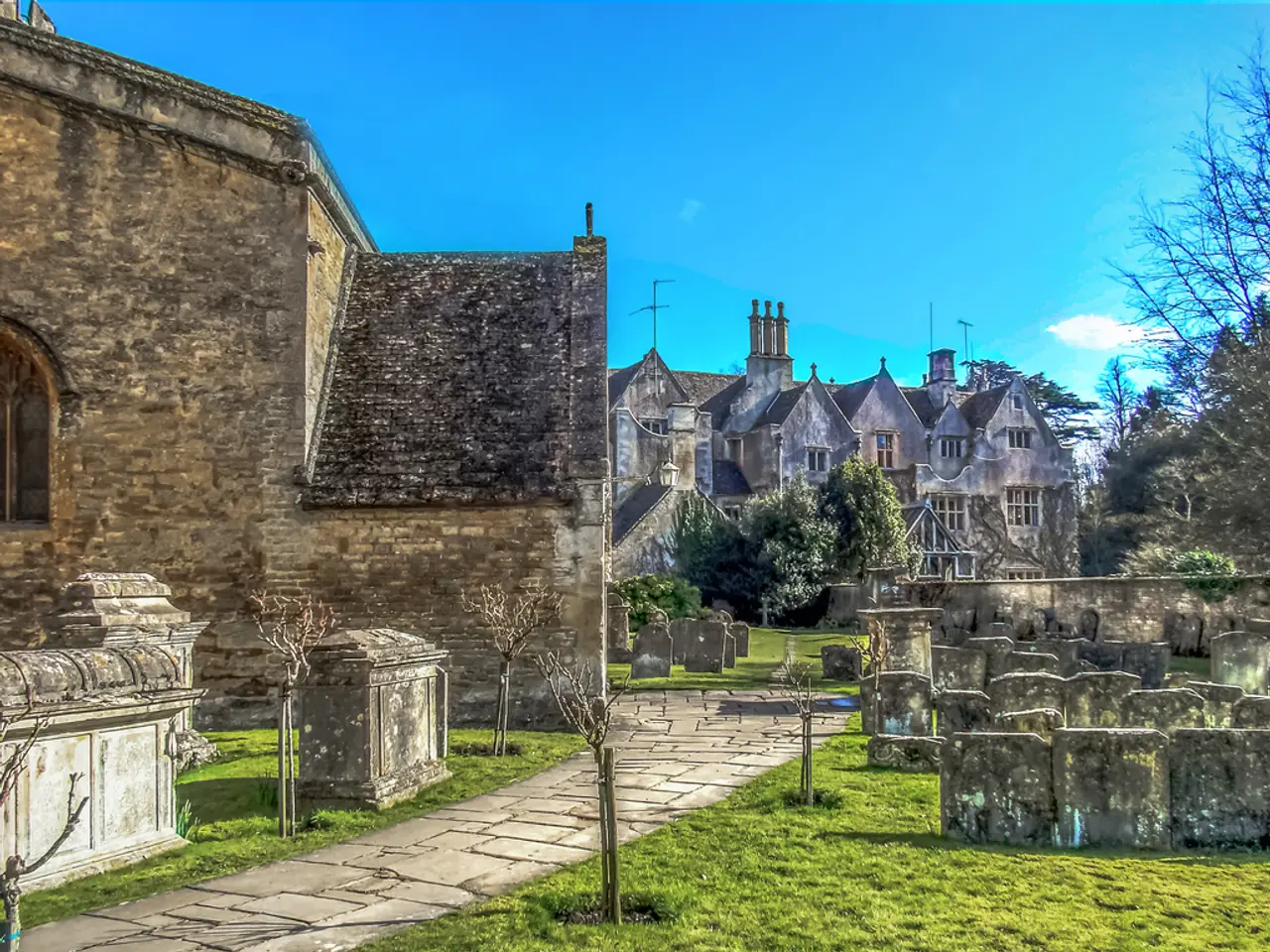Abandoned mansions for high-end real estate subjected to elevated taxation
In a bid to address Germany's housing crisis, the Left party has proposed a special tax on luxury villas to finance social housing. This tax, inspired by the successful implementation of a "mansion tax" in Los Angeles, could potentially generate hundreds of millions of euros annually in Germany.
The proposed tax would be a surcharge of five percent on the real estate transfer tax for property purchases of four million euros or more in Germany. The tax would apply to property purchases of a certain value in cities like Berlin, Munich, Hamburg, and Frankfurt, where luxury real estate is concentrated and affordable housing is scarce.
According to the party leader, Jan van Aken, many people are struggling to find a place to live, while some individuals own luxury villas and underutilize large portions of their properties. Van Aken suggests that these individuals should pay a tax on their excessive living conditions, and the funds could be used to finance affordable housing for everyone.
The details regarding the number of properties affected and the potential income generation for the state are unclear. However, an analysis based on Los Angeles data suggests that a tax regime similar to LA’s 4%-5.5% transfer tax on sales above €5 million could potentially generate several hundred million euros annually in Germany.
In Los Angeles, Measure ULA, a "mansion tax" introduced in 2022, imposes an additional transfer tax of 4% on property sales above $5 million and 5.5% on sales above $10 million. Although the tax has underperformed expectations, it still generates around $600 million annually in a single city with a large luxury inventory.
Germany's luxury real estate market is somewhat less active than in LA, but it still has a significant number of high-value properties. If a tax regime in Germany mirrored LA’s 4%-5.5% transfer tax on sales above €5 million, potential revenue could scale with the number of annual luxury property transactions exceeding that threshold, the average transaction prices of ultra-luxury villas, and the total taxable turnover in this segment.
It's worth noting that the proposed tax is intended to address the housing crisis by providing funding for social housing. The tax could potentially be used to finance affordable housing for a variety of individuals, including divorced couples, families, and adult children moving out of their parents' homes.
The concept for this tax was obtained by the German Press Agency from the party leadership. The Left party has made affordable housing and wealth taxes a focus of the federal election campaign, and the party's proposal for a luxury villa tax combines both objectives.
In conclusion, a luxury villa tax similar to Los Angeles' mansion tax could potentially provide a notable revenue source in Germany, but it would require adaptation to Germany's market characteristics, careful setting of thresholds, and detailed data analysis to estimate exact impact and affected property counts accurately.
- The Left party in Germany has proposed a special tax on luxury villas for financing social housing, similar to the mansion tax in Los Angeles.
- The proposed luxury villa tax would be a surcharge of five percent on the real estate transfer tax for property purchases of four million euros or more.
- If implemented, the tax could potentially generate hundreds of millions of euros annually, which could be used to fund affordable housing for various individuals.
- The tax would mainly affect luxury real estate in major cities like Berlin, Munich, Hamburg, and Frankfurt, where affordable housing is scarce and luxury real estate is concentrated.




